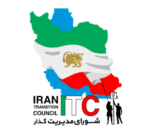By Ben Wolfgang and Guy Taylor (The Washington Times)
President Trump in 2019 sought to open a back channel of communication with top Iranian officials and saw the U.N. General Assembly meeting in September as a potential opportunity to defuse escalating tension with Tehran, but the effort failed.
Two months earlier, however, a different back channel was thriving in New York. Iran’s smooth, English-speaking foreign minister, Mohammad Javad Zarif, met with Robert Malley, who was President Obama’s Middle East adviser, in an apparent bid to undermine the Trump team and lay the groundwork for post-Trump relations.
The attempt at counterdiplomacy offers a window into the deep relationships Mr. Zarif forged with influential U.S. liberals over the past decade. These relationships blossomed into what high-level national security and intelligence sources say allowed the Iranian regime to bypass Mr. Trump and work directly with Obama administration veterans that Tehran hoped would soon return to power in Washington.
One of those was former Secretary of State John F. Kerry, who met with Mr. Zarif during the Trump years. So did Obama-era Energy Secretary Ernest Moniz. They, along with Mr. Malley, were top U.S. negotiators of the 2015 Joint Comprehensive Plan of Action (JCPOA). As part of the deal, Tehran promised to limit its nuclear enrichment activities in exchange for economic sanctions relief and access to tens of billions of dollars in frozen bank accounts.
Mr. Trump pulled the U.S. out of the pact in 2018. He cited the need for a much tougher agreement that also addressed Iran’s support for terrorist groups and its destabilizing behavior in the Middle East.
Mr. Kerry and Mr. Malley are now in the Biden administration, Mr. Kerry as a climate adviser and Mr. Malley poised to play a major role in U.S.-Iranian relations from his perch as special envoy for Iran policy at the State Department.
But Mr. Zarif’s power extends far beyond the negotiating table. Numerous sources have told The Washington Times that he wields tremendous influence over a tightly knit group inside the U.S. that has long advocated for Washington to take a more accommodating tack toward Iran.









